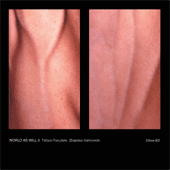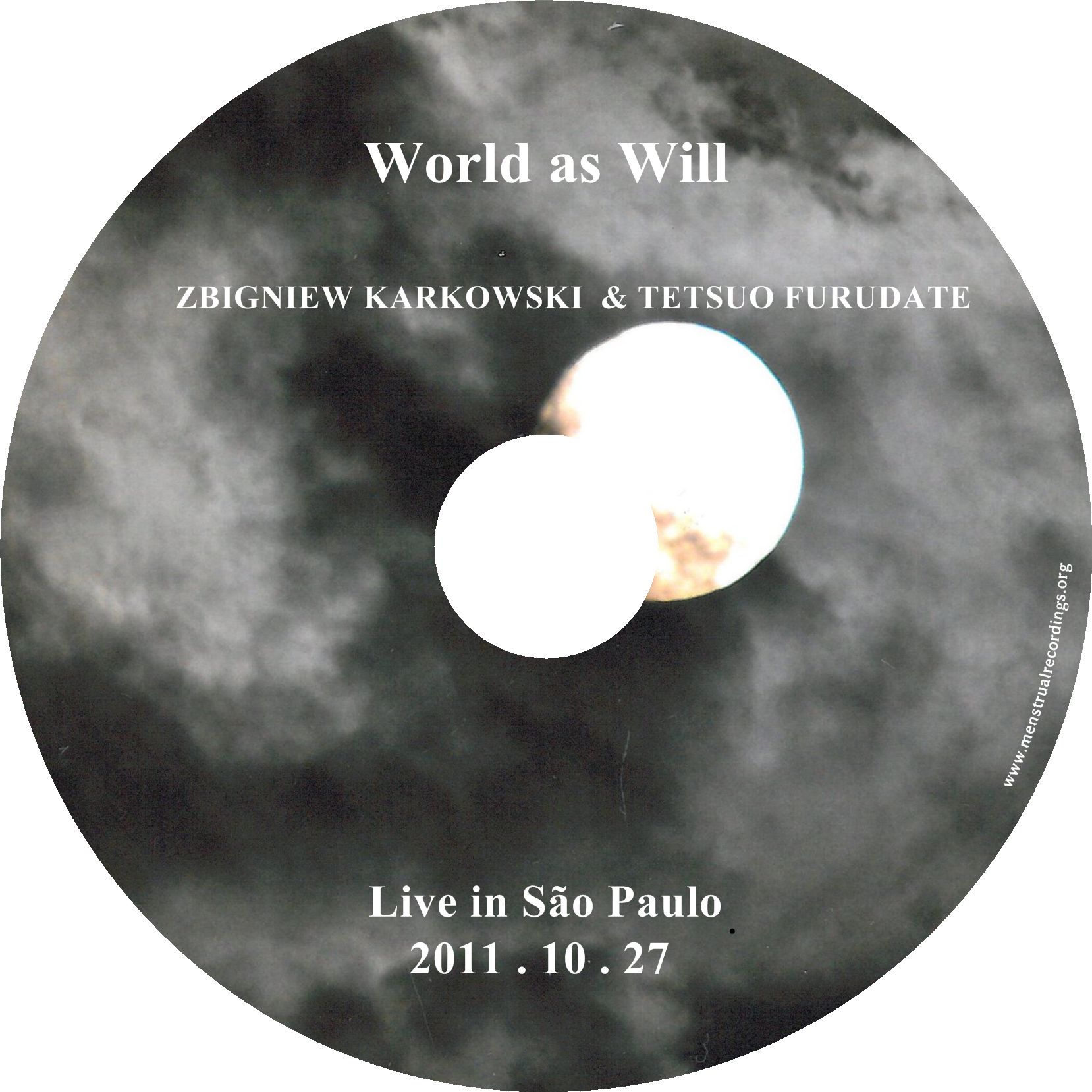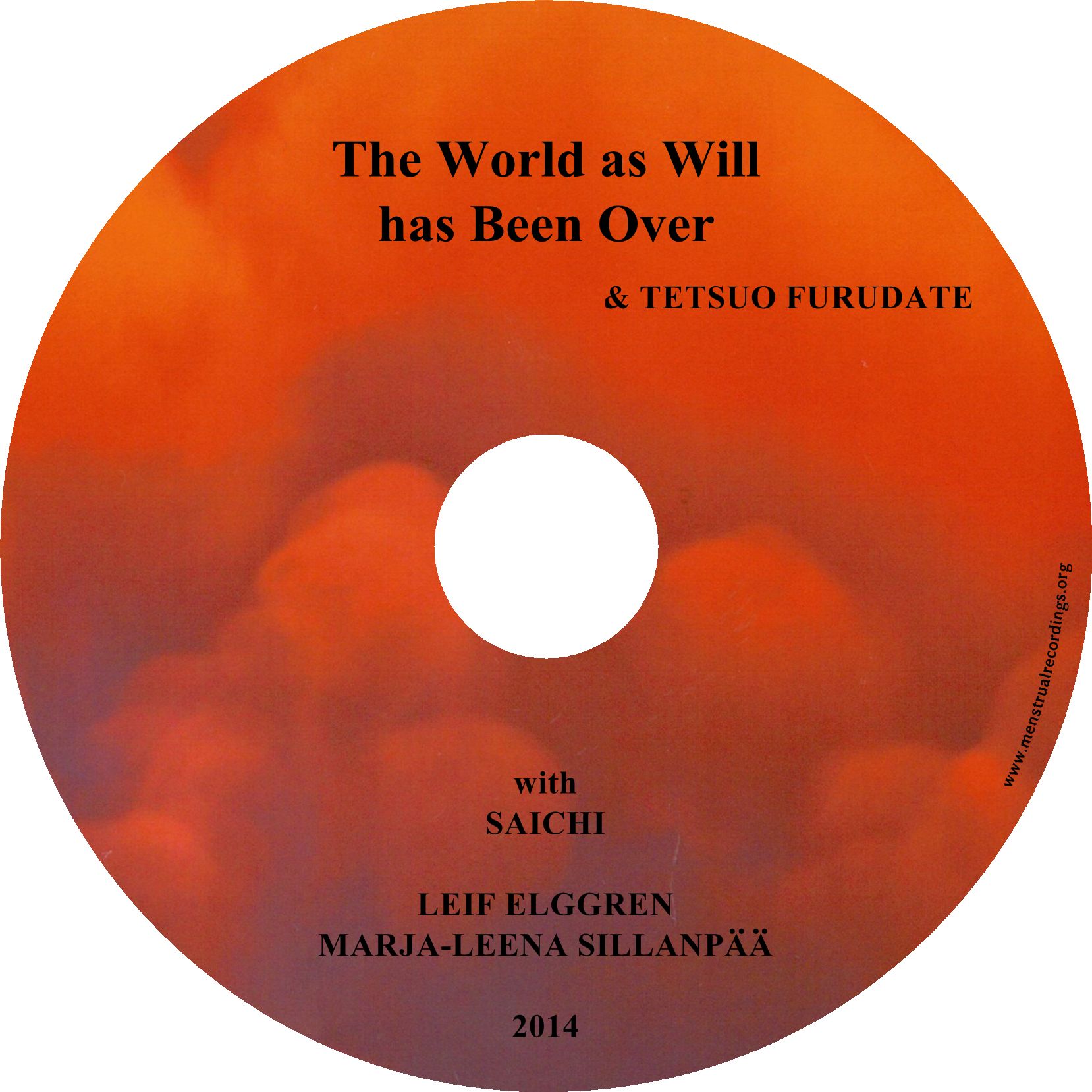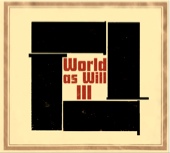"CSW" in Warszawa in April 2008
World as Will
> 1-) World as Will is a joint project from two people with their own individual outputs. How did you two meet and why did you decide to do this project together?
>
We met in 1994 (or maybe 1995). Some time afterwards we played few concerts afterwards and I think idea of making first cd came after live collaboration first.
We probably enjoyed playing together.
>
> 2-) How was the composition process. Were you two physically present, or did you did it through the internet by sending soundclips? I also know that you performed live together. What´s the difference between: composing together while physically present (if that´s ever occurred), composing together by trading sound samples and improvising in a live situation?
>
Yes, we were always physically present when we worked on these cd's. In fact I do not believe in collaborations via internet or post - just sending audio files to somebody else by internet or on cd. I think such process is more about remixing then collaboration. So I never do it in this way. All my collaborative cd's are done in physical presence (live recordings that are afterwards edited or work together in the studio).
And I do not believe in improvisation - I cannot improvise.> 3-) It strikes me as important that you are formatively from different cultures, and yet, you are informed by diverse backgrounds in your life and work. Karkowski, a classically-trained european musician who lives in Japan and participates in the noise scene there, Furudate a japanese artist with constant references to western thought and art (Levinas, Shakespeare, Poe...) and a penchant for the musical theater. How do you think this different backgrounds influenced the work produced?
>
I do not know. Have never thought about the fact that we come from different cultures and different backgrounds. So it probably never influenced our work and is not important.> 4-) The title "World as will" is taken from Schopenhauer. In the liner notes to the second installation in the series you say that you both adhere somewhat to his philosophy. So it would maybe be accurate to say that the title is no accident. What would be precisely the relationship between the music you created and Schopenhauer´s thought, besides obvious references like the Wagner samples?
>
Personally I do not adhere at all to Schopenhauer's philosophy. From what I read by him - I found it all too pessimistic. I prefere much more Nietzsche and his idea/wish of bringing back philosophical discourse to where it all came from (and in western culture = greek roots, like Socrates who was discussing philosophy with citizen's of Athens on the streets) and making it a happy and direct science for the people. Maybe Nietzsche was tired of all dialectics of Kant/Hegel and pessimism of Schopenhauer (and the whole bullshit discussions in western philosophy). His most important book is called Gay science (Fröhlische Wissenschaft - which means kind of like a happy science) and this book is very eastern (nearly pure buddhism) in it's message.> 5-) The artwork also draw ambiguously from the schopenhauerian cultural climate. There´s a swastika displayed on the cover of the first record. We can think of that as either an eastern symbol, and we know that Schopenhauer was influenced by eastern thought, in particular hinduism and buddhism, or we can think of that as a symbol of national-socialism, which could be thought as an indirect and perverted offspring of 19th century german thought, from Schopenhauer to Wagner to Nietzsche. Could you comment on that? Is this ambiguity intentional?
>
Actually all covers of World as Will (all 3 cd's) come from sake (japanese rice wine) etiquettes.
I think that ambiguity (confusion) is progress because it makes people think (at least).> 6-) Technically, how was the orchestral bits produced? Was the orchestra recorded specially for this project, or did you use exclusively pre-existing material?
>
Orchestra was sampled - I sampled recordings of my own instrumental compositions (which were all composed much earlier) and for second piece on World as Will II there's a short looped sample from Wagner. Tetsuo uses sometimes samples too from orchestral music. I do not know from which composers exactly. And on World as Will I tetsuo (and one other girl) play violins (recorded in the studio)> 7-) Furudate provides some intensely dramatical voice performances in some of the pieces. What function has the voice in the World as Will series? Was there any text being articulated? What about the guitar and percussion sounds?
>
The function of all sounds is that they should be good and powerful sounds. Does not matter from which instrument it comes (voice is also an instrument)> 8-) There´s a necessary relation between writing (écriture) and pure sound. In World as Will you have a musical culture which is based in writing, and reading from scores, represented in the instrumental samples, and you have another noise culture which disposes of it in order to focus on pure sound and pure energy. Would that be a possible replica to Schopenhauer´s distiction between representation and will or is it pushing to far the analogy?
>
I actually do not thing that there's any necessary relation between writing (écriture) and pure sound. It's kind of a myth in western art music. As an extreme example - Pierre Boulez wrote once that he finds it much more interesting to see how a piece is composed (see how it's scored on paper) then to hear how it sounds. Boulez is very important person in this scene (kind of like a guru) so the whole style/tradition of IRCAM is based on this notion. Scores have to look very complex/advanced and there's more and more theoretical/scientific explanations of compositions but nobody cares about how these compositions sound (pure sound). I think this is dead end for contemporary music.> 9-) Why did you decide to do individual compositions for the third record?
>
I do not remember. We maybe wanted to change a bit 3rd cd from first 2.> 10-) The three works, even if they share some common attributes are very different from each other. The first one seem to focus on orchestra and percussive sounds. The second seems to be more of a noise-oriented record, and it has the loud Wagner-piece in it. The third seems to be much more abstract and dwelve into electroacoustic music, even if some of it (the third piece) is actually instrumental. Could you comment on these differences and how do you see records together? Were there different compositional approaches in each one of them? If so, could you comment on that?
>
These 3 works were realized during 10 years (there's like 3 or 4 years between each one of them was recorded and released). 10 years is a long time and nothing is static - everything changes. So it's just natural that these 3 cd's are different from each others.> 11-) How was the collaboration with the Zeitkratzer ensemble in the third record? I understand that they only play the third track, the Karkowski one. Is that accurate? If that is so, it strikes me as interesting how the other pieces on this record mantain, to my ears, a consistent sonority throughout. Considering the third track existed before the other two, was it a conscious decision to mantain a consistency of sonority with that one?
>
It's true - zeitkratzer plays only 3rd track on World as Will III (there's no electronics there - only amplified acoustic instruments). And I don't think that there was any conscious decision to mantain any consistency for 2 other pieces on this cd. If you feel that all 3 pieces have consistent sonority - it maybe means that Tetsuo and me have good ears and make good choices in composing/organizing our pieces and cd's.Interviewer: J.-P. Caron
Interviewee: ZBIGNIEW KARKOWSKI 2010
ZBIGNIEW KARKOWSKI
Zbigniew Karkowski is a Polish-Swedish composer/musician presently living and working in Tokyo, Japan. He has worked professionaly in the areas of written contemporary music, industrial music, pop music and experimental performance for the last 15 years. Karkowski has presented his work in more then 30 countries on nearly all continents. He is conviced that it is a responsibility of an artist in present time to travel and move and work around the World in order to learn and understand different cultures and traditions and discover truth about us and our planet. He is not interested in traditional definition of what is music, in his opinion all theory and systems of music as a cultural concepts have to be destroyed. So in his latest work his main concern is on realizing drama with sound electronic and acoustic walls with scores based on architectures of ruins.
TETSUO FURUDATE
Started his career in experimental firm and video art in 1981.From middle of 80's, he gradually turned into music through performing art. He achieved the premier show of his newest experimental noise opera, "Othello", at Podwil in Berlin in 2001. He had premieres of "Wozzeck" at Podewil in Berlin and "Auditory Sence of Mr.Roderick Usher" at Dresdner Zentrums fur zeditgenossische Musik (DZzM) in Dresden in 2003 "The Auditory Sense of Mr. Roderick Usher" won the "BLAUE BRUCKE prize 2003". “Motome-Zuka” radio version won second prize of "The International Radio Art Festival". He had solo concerts in Tel Aviv, Zagreb and Guangzhou Shenzhen and H.K. and more in 2007. His new piece “Goya” has broadcasted by theDeutschlandradio also he had Premier of new musical drama “Hiroshima mon amour ” in Berlin and Kyoto in 2008. Participate in the 33rd Gothenburg film festival in 2009. He win fonds "Experimentelles Musiktheater" from the State NRW of German.
He has premiere of "Death Fragments - Büchner, 23 years old" on 16th April, 2011 at The Theater Bielefeld.
World as noise and representation by J.-P. Caron
The World as will has Been Over
nevermore

World as Will II (CD) / 2002
23five Incorporated (23five003)
Brainwashed.com
Will creates human Tragedies, causes Chaos, and is the primary source of Creation profess the liner notes to World As Will II, referencing the philosophy of Arthur Schopenhauer, who believed that everything was intrinsically will, and inherently negative, naturally causing conflict and suffering. The only escapes are in denying one's will or in experiencing art. Furudate and Karkowski have created truly cathartic music, as heavy as the accompanying philosophy, which is at times oppresive but always tragically magnificent. The album opens with some beautiful, dark orchestrations before suddenly cutting into some harsh glitches and ominous looped electronics. The sounds grow ragged with distortion before erupting in an assault of noise and digitally processed metallic clamor. Furudate and Karkowski build a chaotic collage of dissonant horns, violent vocals, and punishing electronic tones that makes for an uneasy but rich listen. Part 2 begins with some looped Wagner samples that recalls the tape pieces of early minimalism; on their own these symphonic phrases would be too bombastic, but in this context they take on a morbidly majestic quality.
Wagner himself was heavily influenced by the writings of Schopenhauer, so it's appropriate that the duo chose to integrate his art into their own. The samples soon yield to layers of bright, shrapnel-like noise that might be the sound of a pitch-shifted orchestra. Later on, the harsh vocals return and the tones grow steadily sharper. The booming knell of a drum dramatically carries the piece out over a clatter of crashing sounds. I'm left wondering why these two artists are so interested in Schopenhauer; perhaps noise music is the ultimate statement of the human condition and our inevitable suffering. Schopenhauer believed that music is distinct from all other art in that it is a pure manifestation of will; it is a universal language that reaches us on our innermost level, transcending culture and even the world itself. Regardless of any of this oftentimes pessimistic intellectualism, 'World As Will II' is a creative and extremely powerful recording. - Steve Smith
more REVIEWS

World as Will (CD) / 1998
Staalplat (STCD 133)
All Music Guide
Staalplaat's 1998 release of World as Will (the title is taken from Schopenhauer's famous philosophical work) comes as an anomaly in the output of its two collaborators. Zbigniew Karkowski and Tetsuo Furudate are most well-known for their electronic performances, but for this release they have collaborated on two fully composed orchestral works, played here by the Gothenburg Symphony Orchestra. Karkowski and Furudate continue a tradition most closely connected with Greek composer Iannis Xenakis (one of Karkowski's teachers and primary influences), where the orchestra creates a strange and bewildering sound world, far removed from most concert halls. The longer of the two pieces presented here, Consolidated World, opens with thunderous drum beats, with the orchestra creating eerie drones that eventually overtake the drums. Augmented by an array of percussionists, the orchestra blends sirens, brass alarms, wailing voices, and other unidentifiable sounds. The authors' work in electronics is evident in some of their constructions, which sometimes sound like overlapped tape loops. Floating World is a piece for strings, starting with a cello line slowly rising to meet a constant tone without vibrato, then dissolving into a complex cacophony once the two lines meet. Xenakis' influence is in evidence here, but both pieces have lives of their own, and show that even after the orchestral advances of the serial composers, there is still interesting and challenging work written for orchestras today. - Caleb Deupree



